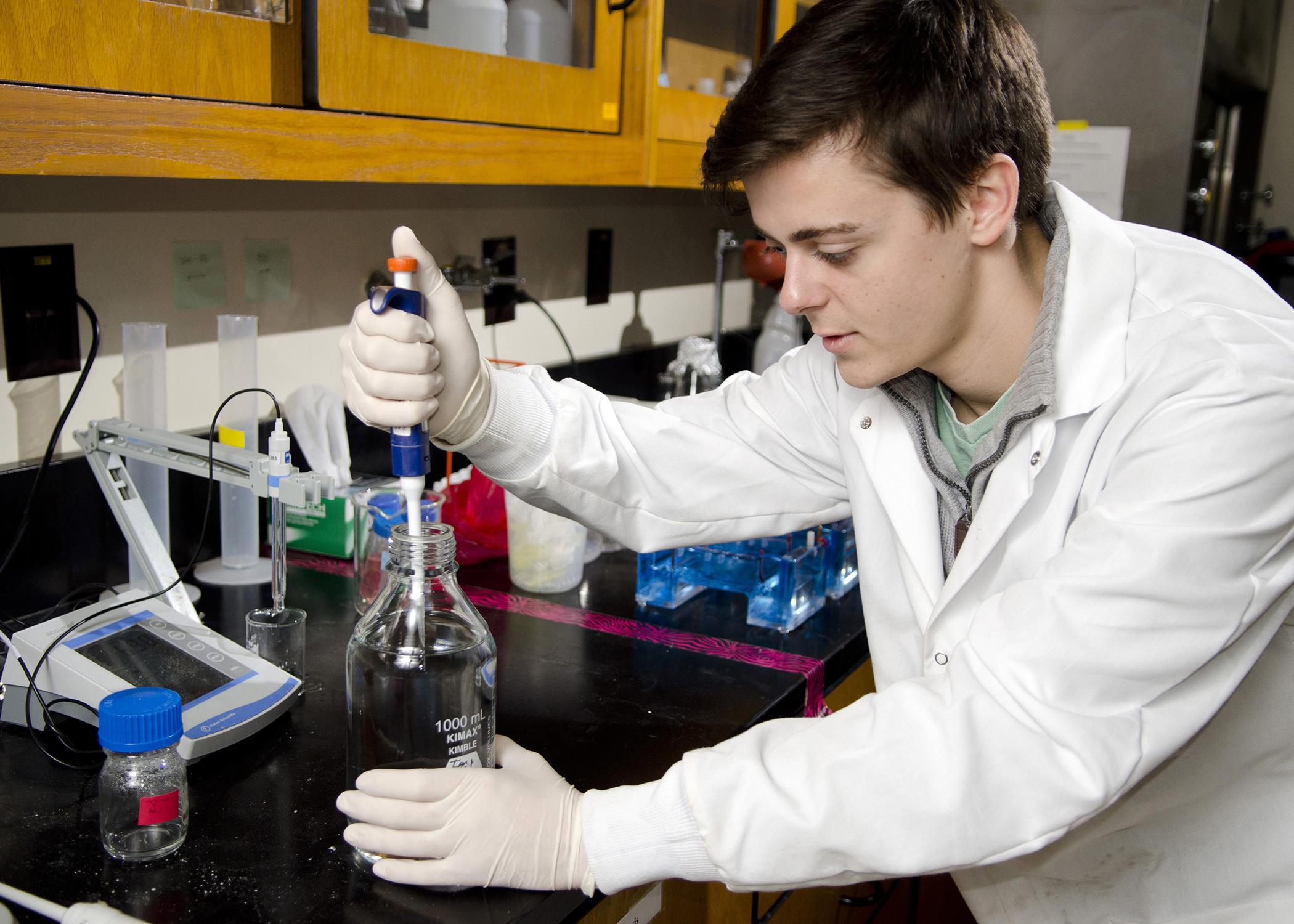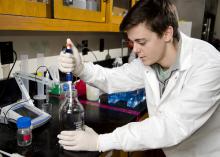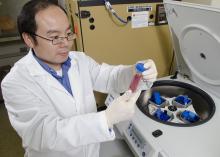Information Possibly Outdated
The information presented on this page was originally released on November 18, 2013. It may not be outdated, but please search our site for more current information. If you plan to quote or reference this information in a publication, please check with the Extension specialist or author before proceeding.
MSU freshman learns research ropes in flu lab
MISSISSIPPI STATE – Lucas Ferguson is a little different from most other Mississippi State University freshmen.
Ferguson, a Batesville native, got a head start on his goal to become a medical researcher last year while still a senior at the Mississippi School for Mathematics and Science in Columbus. Ferguson began learning basic biosafety and maintenance procedures by assisting Dr. Henry Wan’s graduate, Ph.D. and post-doctoral students with their research in the virology laboratory.
Wan is an associate professor in the Department of Basic Science at the MSU College of Veterinary Medicine. He serves as a mentor in the faculty-student research program that introduces students such as Ferguson to research. The program, sponsored by the MSU Office of Research and Economic Development, allows high school juniors and seniors to earn high school credit while learning research fundamentals.
“I hope to have my own research project next semester, but for now I keep the lab clean and stocked,” said Ferguson, a microbiology major. “I do everything from clean petri dishes to take out the trash. It helps me understand basic safety procedures and how a lab works before beginning my own research project. It also helps the lab run smoothly.”
Researchers in Wan’s laboratory study various aspects of the influenza virus, which affects humans and many different animal species.
Wan said work in the laboratory focuses on improving influenza surveillance, understanding how the virus changes and improving vaccines.
“One example of what we study in the lab is a project that involves figuring out how the influenza virus jumps from bird to dog and from horse to dog,” Wan said.
Research in the lab contributes immediately to the medical field and teaches students to use the proper techniques to identify and solve problems facing medicine, Wan said.
“The goal of my lab is to train students, and the projects we work on lead to scientific discoveries that contribute to how medical practitioners respond to the prevention, diagnosis and treatment of disease,” he said. “Scientists in this lab helped develop techniques to optimize flu vaccine strain selection, which was used by laboratories worldwide. They also developed methods of generating high-yield influenza vaccine seed strains necessary for vaccine manufacturing.”
Topics of study change periodically, but Ferguson hopes to study the ecology of influenza viruses, or how the viruses interact with their environment and spread among their hosts.
“Influenza is very versatile, so research in this area could potentially be beneficial in making better vaccines and protecting human populations,” he said.
After graduation, Ferguson plans to enter the public health field, where he can merge his interests in epidemiology and statistics.
“I really enjoy the study of microbes and infection and past pandemics,” he said. “I feel an immense amount of pride working for Dr. Wan and assisting the students with their research. It’s a lot of work, but I know that I will be contributing to the goals of the lab soon.”
Wan established the influenza research program in 2009 after he worked at the influenza division of the Centers for Disease Control. His MSU program focuses on the ecology, evolution and host-pathogen relationship for emerging and re-emerging infectious, zoonotic diseases. Zoonotic diseases are communicable between animals and humans.
Wan recruits two to three undergraduate students each year who are interested in various fields, including microbiology, biochemistry and engineering. In the past four years, more than 10 undergraduates from MSU, Mississippi Valley State University, University of Memphis, Spring Arbor University, University of Michigan and Hiram College have worked in Wan’s influenza program.
Contact: Karen Templeton, 662-325-1100





